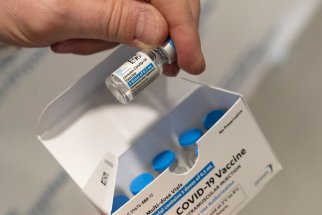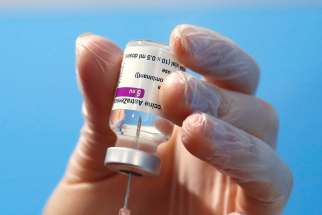Take your best shot Some answers to questions about COVID-19 injections, including two vaccines recently approved by Health Canada
Read this article for free:
or
Already have an account? Log in here »
To continue reading, please subscribe:
Monthly Digital Subscription
$0 for the first 4 weeks*
- Enjoy unlimited reading on winnipegfreepress.com
- Read the E-Edition, our digital replica newspaper
- Access News Break, our award-winning app
- Play interactive puzzles
*No charge for 4 weeks then price increases to the regular rate of $19.00 plus GST every four weeks. Offer available to new and qualified returning subscribers only. Cancel any time.
Monthly Digital Subscription
$4.75/week*
- Enjoy unlimited reading on winnipegfreepress.com
- Read the E-Edition, our digital replica newspaper
- Access News Break, our award-winning app
- Play interactive puzzles
*Billed as $19 plus GST every four weeks. Cancel any time.
To continue reading, please subscribe:
Add Free Press access to your Brandon Sun subscription for only an additional
$1 for the first 4 weeks*
*Your next subscription payment will increase by $1.00 and you will be charged $16.99 plus GST for four weeks. After four weeks, your payment will increase to $23.99 plus GST every four weeks.
Read unlimited articles for free today:
or
Already have an account? Log in here »
Hey there, time traveller!
This article was published 05/03/2021 (1739 days ago), so information in it may no longer be current.
Manitobans got another shot of hope this week when Ottawa approved a new COVID-19 vaccine that is less complicated to get into arms, making it the second, easier-to-handle vaccine to receive approval in recent weeks.
Here’s how the AstraZeneca and Johnson & Johnson vaccines work, and whether they — or the first-on-the-market Moderna and Pfizer-BioNTech products — are a better choice, and for whom.
How do these two news vaccines differ from the existing shots?
In brief, AstraZeneca and Johnson & Johnson are both cheaper and easier to store than the two previously approved vaccines, and they use a different type of technology against the virus.
All four products are extremely effective.
“All these vaccines that have been approved are essentially 100-per-cent effective against death, and they’re all in the range of 90-per-cent effective against severe COVID-19 requiring hospitalization,” said University of Toronto infectious-diseases expert Dr. Tara Moriarty.
“With every single one of them, we’ve hit it out of the park.”
The previous Pfizer and Moderna vaccines used mRNA, a genetic code the body uses to detect then block the prickly spike protein of the coronavirus.
This mRNA is encased in fats to keep its shape, which is why the vaccine requires storage in extreme cold temperatures.
The two new shots are called viral vector vaccines, meaning they use modified viruses from colds that don’t make the recipient sick, to sneak in genetic information on the coronavirus, training the body to defend itself.

AstraZeneca is based off a chimpanzee cold virus that cannot infect humans and has been modified to include information about the coronavirus spike. Humans haven’t previously encountered the virus, so it tricks the immune system into producing antibodies against this spike protein.
Johnson & Johnson is similar, but uses a human cold virus that doesn’t result in illness and can’t replicate. It’s the only one currently approved for a single shot.
University of Manitoba virologist Dr. Jason Kindrachuk said the two new vaccines transform COVID-19 from a debilitating, potentially deadly, illness to a moderate cold-like episode, if any symptoms emerge.
“All these vaccines help us get back to a more normal type of lifestyle, at a much faster rate,” Kindrachuk said.
The two new shots have lower documented efficacy — what does that actually mean?
Probably not much.
“Efficacy” refers to the result of clinical trials that compare the number of people who developed symptomatic COVID-19 after receiving the vaccine, versus an unvaccinated placebo control group. The percentage is a baseline infection rate, or an “educated guess” as to how many vaccinated people will contract the virus.
“Effectiveness” is the real-world comparison of how many people get infected, which is more difficult to measure.
The efficacy or the Pfizer and Moderna shots were, respectively, 95 and 94 per cent in U.S. trials — but the trials occurred in situations where the virus wasn’t as widespread.
The AstraZeneca and Johnson & Johnson trials both took place in much more challenging scenarios, including in Brazil and South Africa, during months of high spread.
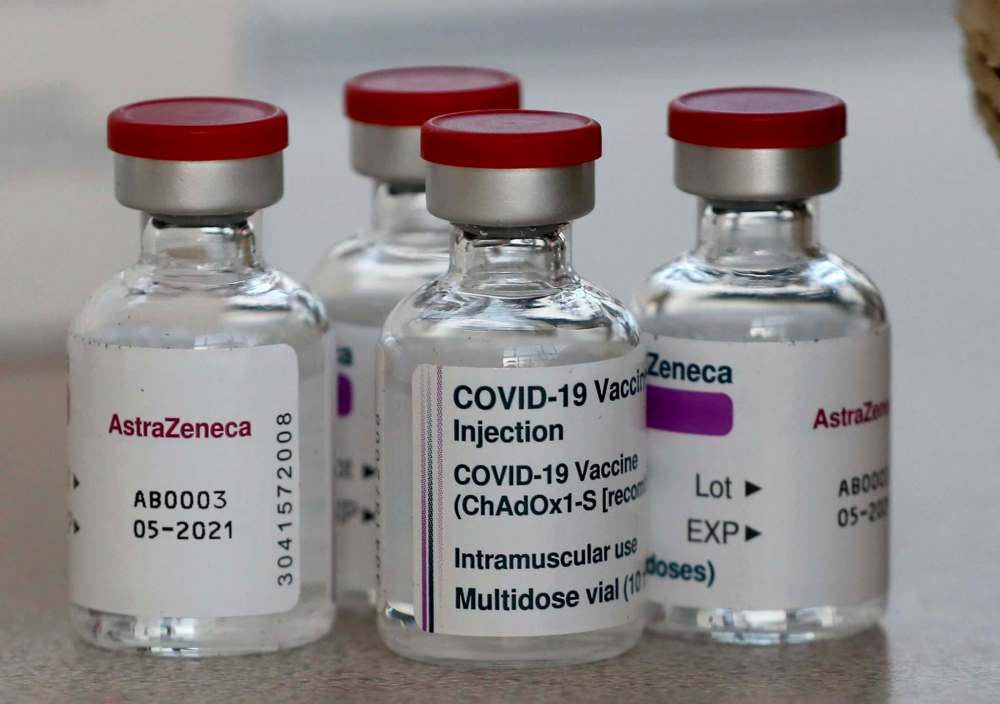
AstraZeneca and Johnson & Johnson vaccines were 82 and 85 per cent effective, respectively, at preventing severe illness and 63 and 66 per cent at preventing moderate illness.
“The transmission rates in communities (being studied) was likely quite different, because COVID-19 is not static; it’s very fluid,” said Kindrachuk.
He said hospital data from the U.K. suggests the AstraZeneca vaccine is more effective in real-life scenarios than what studies suggested.
“This presumption that AstraZeneca was a lesser vaccine, I think was potentially wrong,” he said.
Why are some scientists hesitant to give the AstraZeneca vaccine to people over 65 years old?
This week, Canada’s independent vaccine advisory council recommended against giving the AstraZeneca shot to people age 65 and older, citing a lack of clinical-study data on its effectiveness in that age group.
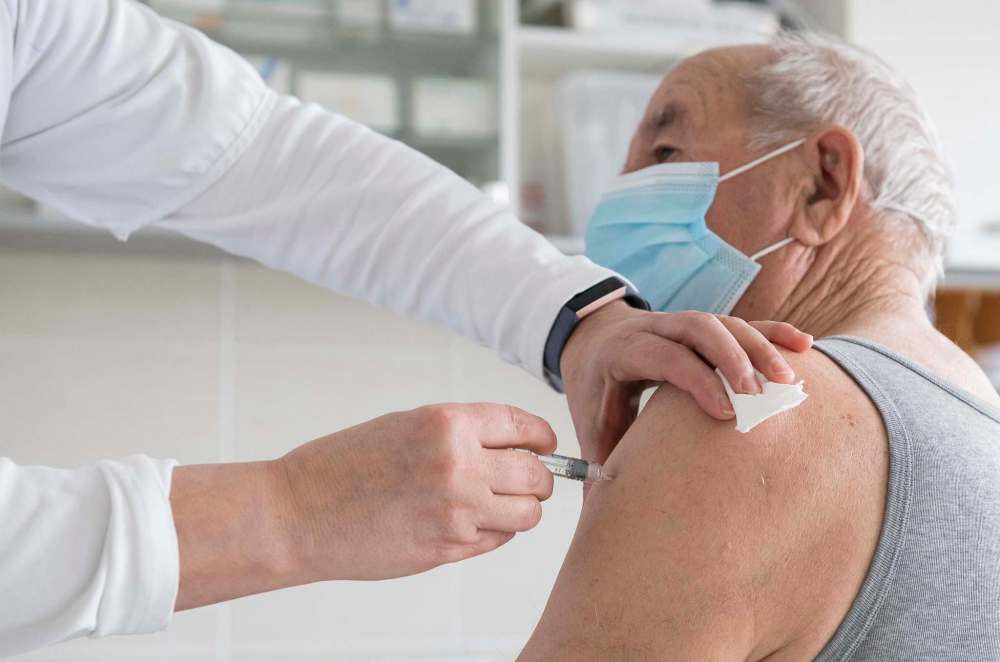
The federal Liberals and most provinces quickly rejected that idea. They cited real-world results, such as the steep drop in seniors being hospitalized in Britain, which has injected thousands of seniors with the AstraZeneca vaccine.
Moriarty noted that conventional vaccines are generally are less effective in older people.
“That’s why older people get high-dose flu shots, for example,” she said.
This week, Manitoba announced it would stick with what most experts suggest: giving the mRNA shots to older people who would have a harder time fighting off COVID-19.
The AstraZeneca shot will be prioritized for people aged 50-64 with a list of health conditions the province will publish shortly.
Do these new shots work against variants?
A month ago, South Africa pulled the AstraZeneca product entirely, because it appeared to not halt minor and moderate infections from the COVID-19 variant that is predominant in that country.
AstraZeneca is retooling its vaccine to better protect against the variant. It appears all four approved vaccines can be retooled to account for the mutations that are causing concern, because the variants all involve changes to the spike protein.
Health Canada said this week it would fast-track approval of modifications to any vaccines that have already been approved.
Is there any good reason to decline a vaccine?
Only people with extremely rare allergies would have a reason. For example, the mRNA shots include polyethylene glycol and polysorbate, which are common in foods, over-the-counter drugs and makeup.
“There are no concerns from anyone with any other kind of food or environmental allergy,” Moriarty said.
“I don’t think there is a good reason right now to not take any of the vaccines.”
– University of Manitoba virologist Dr. Jason Kindrachuk
In any case, Manitoba vaccination sites are all equipped to help anyone who goes into anaphylactic shock, which is why everyone is monitored for 15 minutes after getting a shot. People who inform the vaccination team about an allergy might be asked to wait and be observed for a half-hour out of extra caution.
Pregnant and breastfeeding women should discuss vaccines with their doctors. The vaccines appear to be safe for both, but studies are undergoing final reviews.
“I don’t think there is a good reason right now to not take any of the vaccines,” Kindrachuk said.
Do vaccines prevent people from spreading COVID-19 to others?
Scientists are still trying to figure that out.
The vaccines are designed to prevent people from getting sick, but it’s possible they can still carry and transmit viable coronavirus particles to others.
Doctors welcome COVID-19 questions
Canadian scientists and doctors are answering questions about vaccines every evening on Zoom or by phone, 7-9 p.m. Manitoba time, including on weekends.
“Anyone can drop in from anywhere across the country, and ask questions about the safety of any of the vaccines, to pharmacists, physicians and scientists,” said Dr. Tara Moriarty, an infectious-diseases expert at the University of Toronto.
Canadian scientists and doctors are answering questions about vaccines every evening on Zoom or by phone, 7-9 p.m. Manitoba time, including on weekends.
“Anyone can drop in from anywhere across the country, and ask questions about the safety of any of the vaccines, to pharmacists, physicians and scientists,” said Dr. Tara Moriarty, an infectious-diseases expert at the University of Toronto.
She’s helping lead COVID-19 Resources Canada, a volunteer group that has also hosted vaccine-information sessions for specific groups, such as nail-salon workers, or people who speak Tagalog.
For more information, visit: covid19resources.ca/public/discussions/.
Doctors Manitoba also encourages people to ask their family physicians about any vaccine concerns they have.
— Dylan Robertson
Experiments to test whether vaccinated people can infect others are difficult and ethically dubious.
However, preliminary data from Israel and Britain suggests vaccines might have helped lower transmission, even during periods where highly contagious variants were widespread.
Kindrachuk said that logically makes sense, since vaccines decrease a person’s viral load, as well as the time frame and severity of symptoms such as coughing, which can help spread virus particles.
“In communities that have been vaccinated broadly, you’re seeing a very significant decrease in cases and test-positivity rates, and that ultimately is extremely encouraging,” he said.
How many doses are coming to Manitoba?
Manitoba’s first 18,000 AstraZeneca doses should arrive Monday, with many more scheduled for April and May.
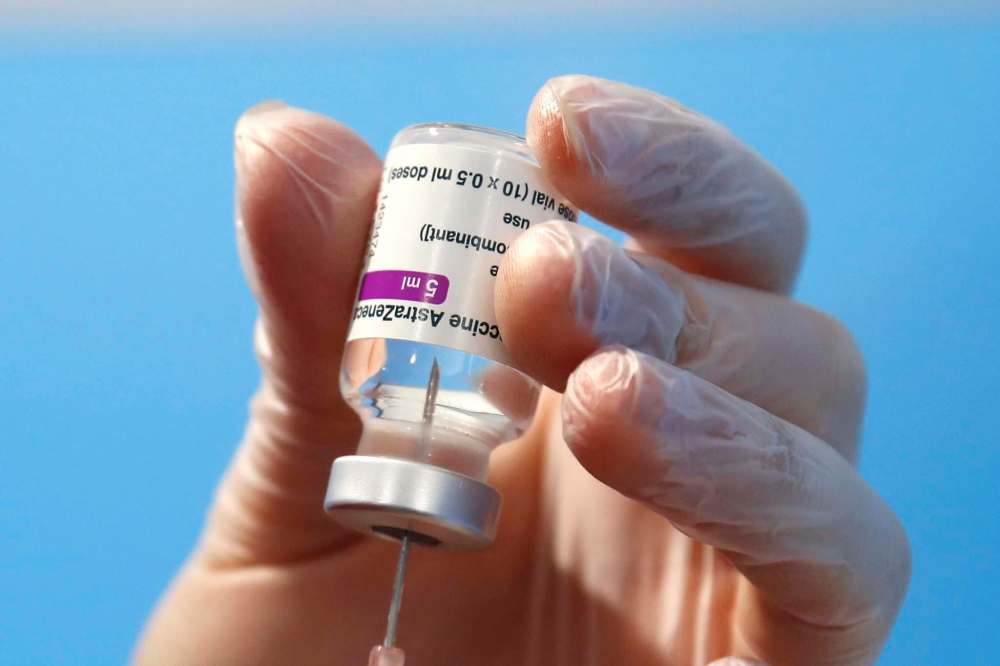
Johnson & Johnson shots are still being allocated to provinces, but Manitoba’s per capita share would be about 370,000 doses by late September.
Pfizer announced Friday it was speeding up shipments to Canada, meaning Manitoba will receive, roughly, a cumulative 290,000 shots by the end of the month, including the 96,000 already delivered.
Manitoba is expecting a cumulative 228,000 Moderna shots by March 31, including the 28,900 already delivered.
Is there any plan to vaccinate kids?
Not yet; this is still being researched. The data for teenagers and children might not come in time for the resumption of classes in September, Health Canada officials said Friday.
In any case, it’s not clear how well vaccines cut down on virus transmission, which is the main concern for schools, given that children rarely have severe COVID-19 symptoms.
However, the federal plan to vaccinate all willing adults by then might provide sufficient herd immunity for schools to safely resume.
Manitoba and other provinces are allowing four-month intervals between doses, one of the longest lags in the world. Are we guinea pigs?
Not necessarily. The vaccines are so new that it’s hard to know exactly when the second shot should be administered; some clinical trials suggest a single shot might be adequate.
The guidance this week from Canada’s vaccination advisory council was that it made more sense to step up the pace of first-dose vaccines than provide second doses while others wait.
“I think they’re erring on the side of caution, in a different way… partly because Canada has had challenges in receiving enough does until now, and because we’re rapidly seeing an increase in (more contagious) variants across the country,” Moriarty said.
“I don’t think we have a lot of choice.”
Kindrachuk said data increasingly shows that immunity from single shots doesn’t wane after four months, and would likely cut down on COVID-19 spread.
Federal officials said they will monitor how things go, and shift plans if it appears the longer interval isn’t safe.
Can people get a mix of shots?
Studies are underway in Britain to see whether its possible to boost immunity with unmatched doses instead of using the same vaccine for both shots.
The rationale is that mRNA vaccines produce a response in your cells, while AstraZeneca and Johnson & Johnson focus only on antibodies, and both might solidify an immune response, including to variant strains.
Canada is exploring research on the issue.
dylan.robertson@freepress.mb.ca
History
Updated on Friday, March 5, 2021 11:06 PM CST: Updates deck and lede reflecting vaccine approval dates.
Updated on Saturday, March 6, 2021 10:26 AM CST: Corrects typo.

